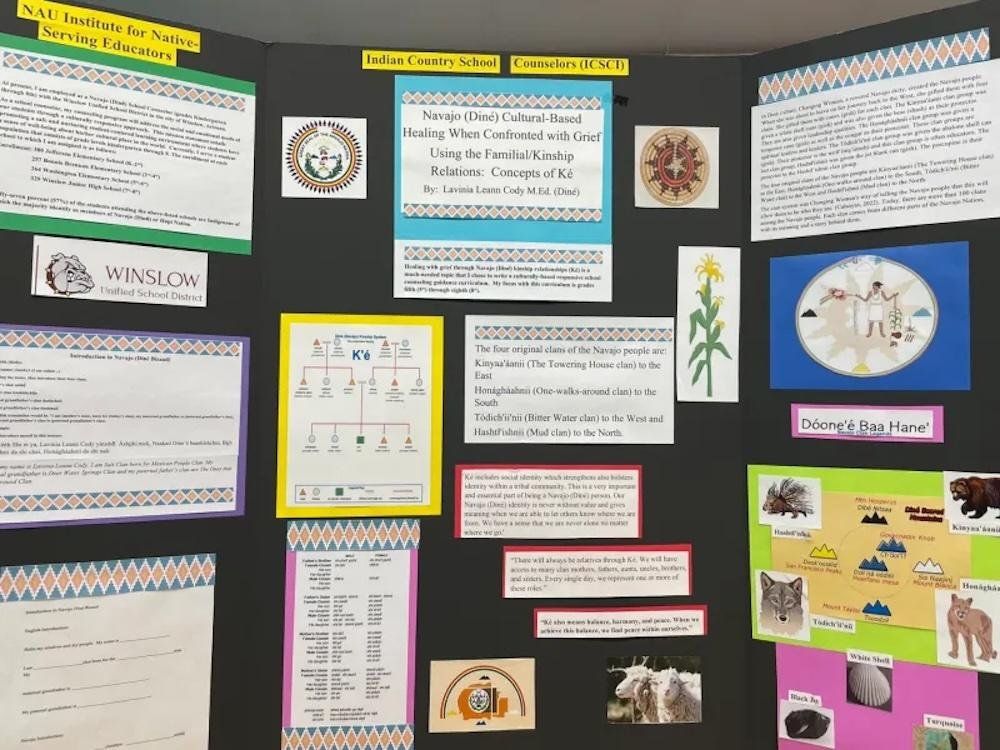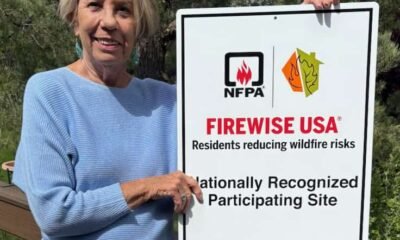faith
COVID’s Toll: Over 200,000 Children Left Without Parents, Indian Country Hit Hardest

This story was produced by MindSite News, an independent, nonprofit journalism site focused on mental health.
As the five-year anniversary of COVID-19 approaches, the impact on the Navajo Nation remains profound. The virus swept through remote communities with brutal intensity, resulting in significant loss. An estimated 2,000 Indigenous children in northern Arizona, New Mexico, and Utah found themselves without a parent or caregiver. This staggering figure is just a glimpse into ongoing grief and hardship.
Chenae Yazzie, who lost her father, faced a whirlwind of emotions following his death. At the tender age of 12, she experienced her world shatter in January 2021 when her father, Irvin Yazzie, fell ill. Initially suspecting COVID-19, he delayed seeking medical help until it was too late, ultimately succumbing alone in a hospital, where no one could say goodbye.
“It just happened so fast,” reflected Cheryl Nez, Chenae’s mother. Irvin was airlifted 200 miles away to a COVID ward, where he was placed on a ventilator and isolated from loved ones. This experience epitomized the loneliness faced by many during the pandemic. As rituals of mourning were disrupted, families struggled to comprehend their losses.
Nationally, COVID-19 became a leading cause of parental deaths among various demographics, with American Indian and Alaska Native children suffering disproportionately from these losses. Estimates indicate that nearly 217,000 U.S. children experienced the death of a parent or caretaker due to COVID-19. Furthermore, fatalities among primary caregivers rose during the pandemic, worsening existing vulnerabilities in communities of color.
Cheryl Nez highlighted the emotional toll on children who lost their parents, noting the lack of resources available for grief counseling in rural areas. The Navajo Nation reveals a stark need for mental health support, with providers grossly outnumbered by the population they serve—one mental health provider for every 980 residents in Navajo County compared to one per 550 in Arizona overall.
As the pandemic’s shadows persist, innovative programs are beginning to emerge. Lavinia Cody, a school counselor, initiated a grief support curriculum tailored to Navajo traditions, addressing emotional needs directly. For Chenae, participating in this program offered a sense of understanding and camaraderie. “You know you’re not alone,” she shared, underscoring the importance of connection and support amid overwhelming loss.
Research backs this approach, showing that cultural ties enhance resilience. Schools serving the Navajo population have reported an alarming rate of mental distress among children, yet studies also reveal that Indigenous culture contributes positively to emotional healing.
Organizations like the New York Life Foundation have stepped in, funding grief-sensitive initiatives and support systems across the country. In California, the HOPE program aims to provide financial assistance to COVID orphaned children, an effort that promises small-scale support as communities grapple with broader, systemic vulnerabilities.
Advocates like Kristin Urquiza, whose father died due to COVID-19, emphasize urgency in addressing the needs of pandemic orphans. “These children are hidden and suffering,” she asserts, as societal awareness remains critically low.
On the Navajo Nation, where cultural traditions blend with community resilience, healing practices have adapted to address lingering pandemic grief. Margie Silva, a traditional healer, showcased the importance of cultural rituals in emotional recovery. Despite the trauma of losing loved ones during the pandemic, many are beginning to rediscover strength through traditional practices.
As those affected by COVID-19 navigate their loss, one common thread remains—the profound need for connection, support, and acknowledgment of their grief. In a society often marked by fast-paced progress, the stories of loss deserve to be heard and honored. The journey toward healing, while filled with challenges, underscores the resilience inherent in individuals and communities grappling with unimaginable loss.


















